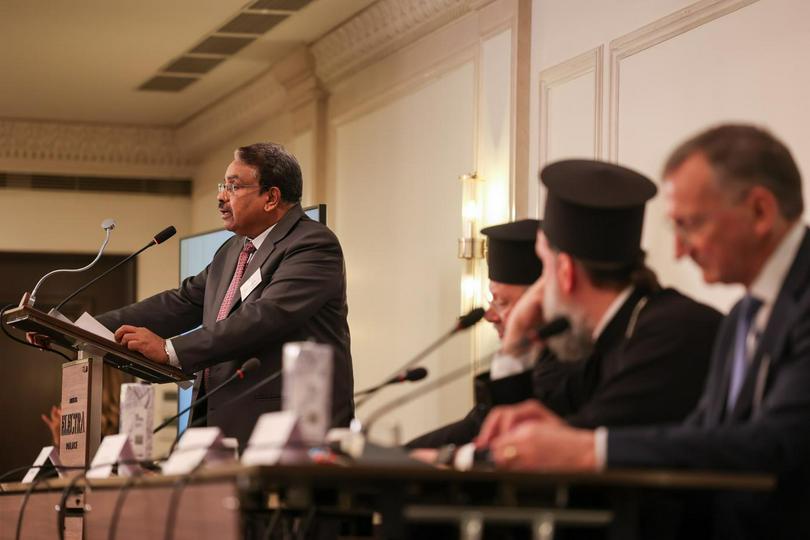Reports from the moderator and the director of the World Council of Churches Commission of the Churches on International Affairs summarized the history of the Conference on Life and Work and looked forward at the commission's upcoming discussions of emerging global trends.
Both reports, on 18 May, were part of the opening of a "Life and Work" centenary conference in Athens.
Commission moderator Dr Mathews George Chunakara noted that the Stockholm Conference paved the way for the emergence of the Life and Work movement.
"Since the 1925 Stockholm Conference, churches realised that they could not exercise influence on the world stage only within their nations or by the mere fact of their existence as churches in a particular country," he said.
The Stockholm Conference addressed a number of issues identified in the post-First World War context. "The need for more concrete actions became evident in the thinking of global church leaders who were in the forefront of the Life and Work movement," Chunakara said. "The Universal Christian Conference on Life and Work in Stockholm was a beginning, a bare beginning, but it opened up wide vistas of hope."
Chunakara acknowledged deepening divisions, mistrust, and fragmentation. "What we are witnessing today is fragmentation within a multipolar global order," he said. "Such a trend often enforces rules and norms created by middle and great powers for selfish goals."
Chunakara also noted that a credible and just peace has many dimensions.
"In the coming days, we will have several opportunities to discuss emerging global trends in international relations and geopolitical developments, as well as our ecumenical responses to these situations," he said.
WCC Commission of the Churches on International Affairs director Peter Prove reflected that our current global context is looking increasingly like the historical circumstances that led to the catastrophic conflicts of the first half of the 20th century.
"The solemn commitments made to accountability to the rule of law and to international cooperation to address global challenges are now being repudiated, at precisely the historical moment when we face an unprecedented convergence of global crises, including especially climate change," he said. "In my view, the international ecumenical movement is not only a voice for international cooperation, but an embodiment of it."
Prove also reported to the meeting on the work that has been and is being carried out by the commission.
Commission of the Churches on International Affairs (CCIA) of the World Council of Churches holds its 60th meeting and the Life and Work Centenary conference on 18-22 May 2025 in Athens, Greece.
Originally from the World Council of Churches
CCD reprinted with permission












